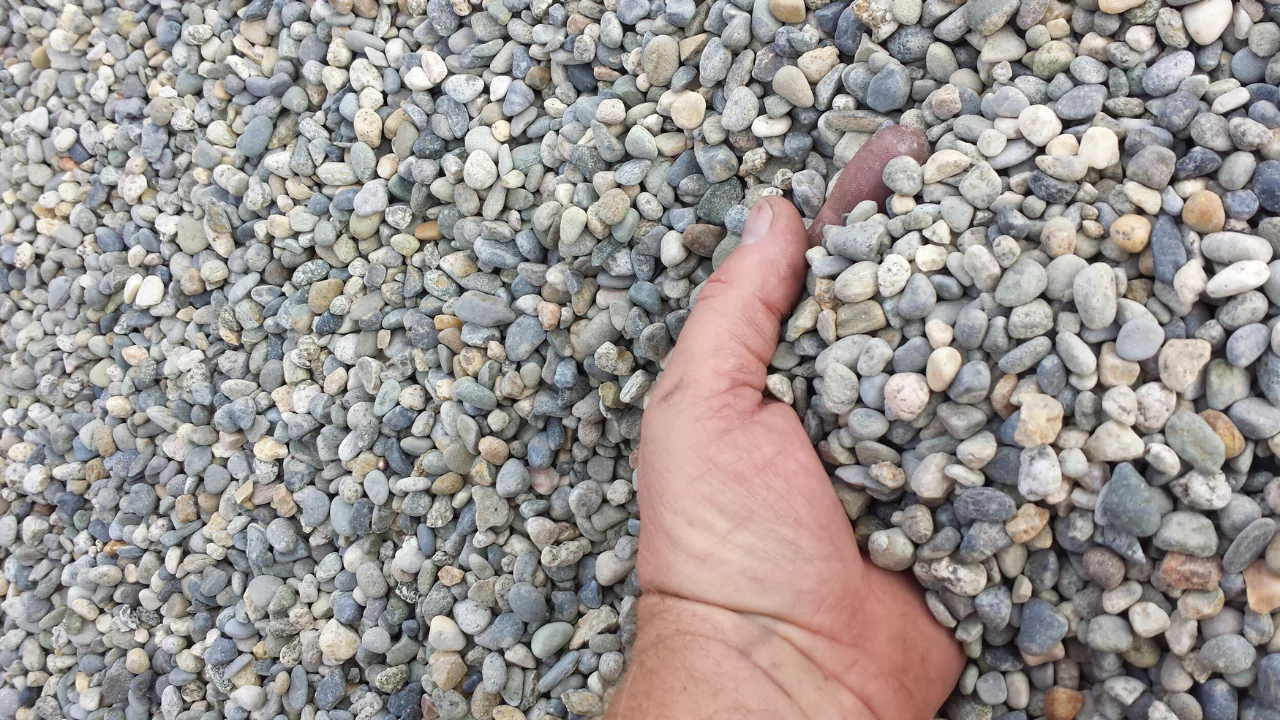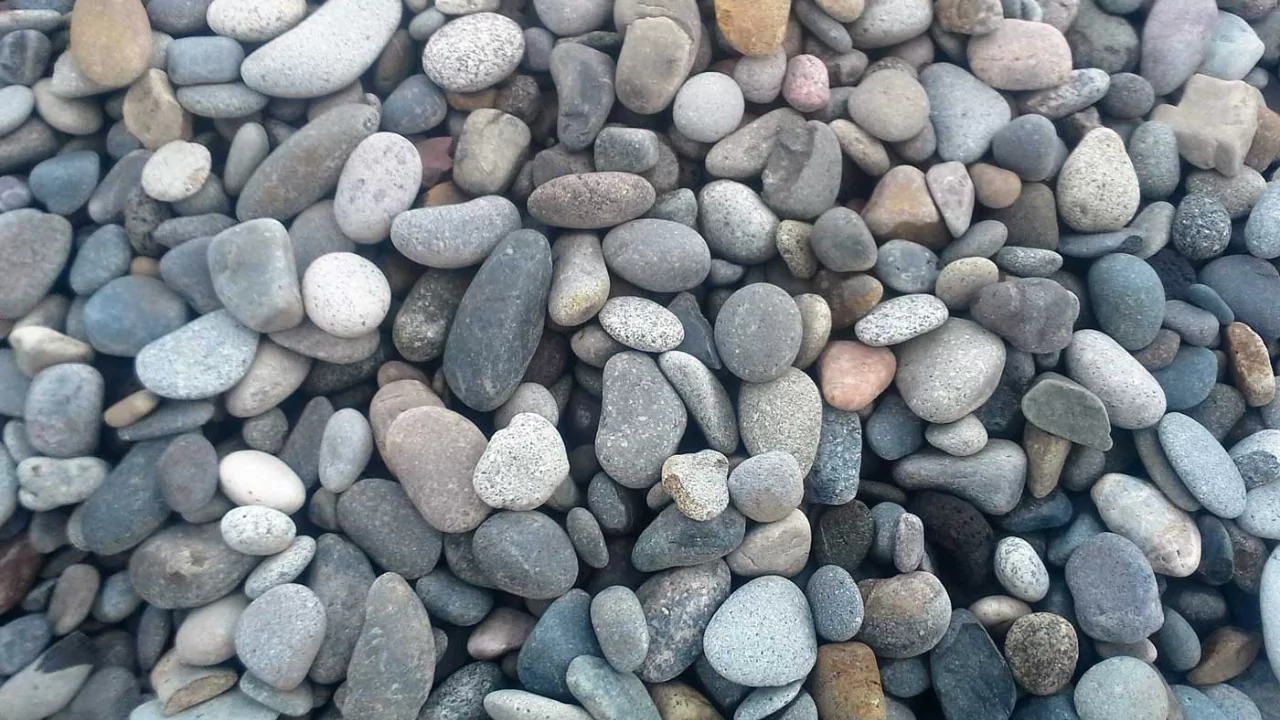From the perspective of structure and aesthetic appeal, nothing influences your landscaping project harder than the hardscapes you add to your outdoor space.
Driveways, patios and garden paths are all part of the hardscapes family and they can be constructed using numerous different materials available at your local landscaping supply company.
While slabs of rock are usually the most expensive border and building materials, they do have the advantage of being more affordable and durable when compared to smaller stones.
As with any design, it is important to choose the right landscaping rocks to fit into the overall design and image you’re going for. As such, we have included some of the most common landscape rocks, which are pea gravel, gravel, crushed stone, river rocks and decomposed granite.

Pea gravel
Gravel that is approximately the size of peas is much more rounded in shape. It is often utilized for walkways and pathways for its durability. It is also frequently employed as a ground cover under xeriscape plants, or utilized as a mulch in sparse areas.
The price of pea gravel is dependent on the color and can fluctuate quite a bit. The colors of pea gravel also vary. Its price ranges from 35 per cubic yard to upwards of 35 per cubic yard to upwards of 50 per cubic yard. The main disadvantage of tiny pea gravel is its tendency to travel.
If the edges are not clearly defined there is a high possibility of finding pea gravel in flower beds and lawns. Furthermore, the gravel is difficult to remove if there is a need to change the landscape or garden design.
Once again, like all rock mulches, pea gravel holds heat and compacts the soil. This can have dire effects on the health of the plants. In most cases, planting beds need need wood chips or other organic mulches to function more effectively.
Gravel
Crushed stone aggregate has rough triangular surfaces that interlock. This configuration helps the gravel bond together when compressed into a dense and durable surface. Driveways are the main use for gravel, however they can also be used for garden paths and patios.
When putting it on roads and driveways, ensure the road is well graded to give proper drainage first. Use bigger stones first as a sturdy base rock then pour the gravel on it. In most cases, a minimum of 8 inches of gravel is advisable.
Maintaining gravel driveways is necessary, especially in wintery areas where snow plowing shifts the gravel.
River Rock
River rocks may vary in size from one inch to several inches in width. They are used as natural edging for flower beds, or as drainage provided for the flowers, and help engender a rustic and aesthetic touch because of their smooth appearance.
With regard to using river rocks, costs tend to differ significantly, as they are most often sold on a weight basis, either by the pound or by the ton. Range at 5-35 cents per pound, and 100toover100toover700 per ton.
For the most natural appeal, while placing river rocks, choose the different size categories within the material. River rocks make yard work tedious. However, planting fabric can assist in the control of weeds and leaves through landscape design before the installation of rocks.
Decomposed Granite

Decomposed granite is simply granite that has weathered to a combination of small rocks and silt. Because of its fine shape, it is often used on walkways or patios. It usually has a rust hue then fades into a light tan color with natural weathering.
Decomposed granite costs around $40 per cubic yard, making it quite reasonable, especially considering its longevity. Many landscape architects apply it in layers, compacting each one to enhance strength.
Another option is a stabilizer product which binds the pieces together that can be added as well. One disadvantage that decomposed granite has is its ability to bind with shoes or pet’s paws. Once brought into the house, it can get a bit messy and damage hardwood floors.
Crushed Stone
The rocks in crushed stone aren’t as finely crushed as decomposed granite, but otherwise quite similar to it. Crushed stone can be found in a wider range of colors, typically costing more than decomposed granite. In comparison to decomposed granite, it has a sharper look making it suitable for modern landscapes.
Weed vegetation can be controlled by using landscaping-grade landscaping fabric. Bear in mind that these fabrics may not get rid of every weed. Any remaining weeds can be hand-pulled or treated with organic herbicides without chemicals.
Try to stay ahead of the weeds. Unless we are talking about completing a small region, purchasing peppered area rocks by the truckload is usually more cost-effective than purchasing them by the bag.